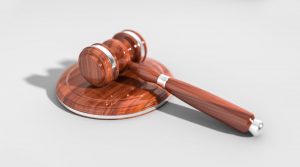Suppose you have a home or apartment you want to rent out full time. What kind of insurance do you need purchase? You will need a rental insurance policy. Some agents may refer to this as a dwelling fire or landlord policy. No matter the name you many options and considerations to take into consideration. Here are some important things to consider before you purchase insurance.
Before You Purchase Rental Property Insurance

Lease: Make sure you have a lease in place and that it is very thorough. Hire a lawyer to look over the lease. While this may be costly it may save you thousands of dollars down the road. Promises are great but the lease is the only thing that will hold up in court. A lawyer will be able to point out all the flaws or areas that may need to be changed. Remember the lawyer deals with these legal issues all the time so trust the professional. Some insurance companies will require that you carry a 12 month lease for your tenants while others may require only 6 months.
Background Check: A background check on your tenants is very important. You might not want someone in your home wont pay their bills or has a criminal background. Once they are in the property it could take anywhere from 30-90 days to evict them. You might want to call prior landlords to see if they would recommend them. They may be able to give you an idea on how they will treat your house or apartment.
Can I Just Use My Current Home Policy?
Home Insurance is designed to protect a home that you occupy. When you have tenants, you need to purchase a landlord or Dwelling fire policy. Most companies won’t let you purchase your typical home insurance policy if you do not live in the home.
Rental Property Insurance

Dwelling: Rental insurance will cover damage to the home itself. Typically there are 3 different types polices called a DP-1,DP-2 and DP-3. The DP-3 provides more coverage similar to a traditional home insurance policy.
Personal Property: The rental insurance policy will cover many different kinds of belongings including items such as furniture, appliances ect. This personal property must be owned by the landlord. The policy will not cover the personal property of the tenant. Some companies only cover items used to service the rental property like a lawn mower or snowblower. It is important to ask your agent how your personal property will be covered because it can vary by company and the state that you live in.
Liability Coverage: Rental Insurance will provide liability coverage to the rented premises. If someone is hurt or others property is damaged and you are found legally responsibly your policy may help pay the expenses. This could be anything from medical expenses to legal fees.
Medical Payments: Most rental insurance polices cover medical payments. This coverage is designed to pay if someone is injured on the property. Once the maximum limit is exhausted then the personal liability may come into place.
Other Structures: Other structures on the property may be covered on the rental insurance policy. This could anything from a fence to a shed.
Fair Rental: If your tenants are put out a home because of a covered loss this coverage may apply. It will help supplement your loss of income if your tenants have to leave or can’t rent it out because of a covered loss. The important thing to remembered is that it must be due to a covered loss.
What Other Coverages Should I Consider?
Some other coverage you might want to consider is earthquake insurance and water back up. Earthquake insurance will cover land movement which is excluded on most policies. Water back up is a coverage designed to cover your dwelling in the event that water physically backs up from your drains and causes damage. You might also consider flood insurance. Flood insurance can either be purchased through the FEMA program or through a private flood insurance company.
What if my home is Vacant?
Make sure to let your insurance agent know if your rental property is vacant. Only certain companies will take homes that are vacant because there is no one there to maintain the home. If something happens, you may not know for a while causing possible further damage. Companies like Vacant Express specialize in Coverage for Vacant Properties.
Now that Your Home is Insurance….
Make sure your tenants carry Renters Insurance and make it a requirement! It is important it as a requirement in a lease, if it isn’t in the lease then you may not have legal grounds to require this type of coverage. The renters insurance policy will have a Liability Limit built into the policy, this liability limit can come into place and cover damage your property, it can also help cover guests medical expenses if your tenant are found legally responsible.
Why is it so important?
Lets say the home goes up in flames because your tenant accidentally left the stove on. If the tenant doesn’t have renters insurance, you may have a major loss. It is possible that your policy would cover it but there is not guarantee because each company has different guidelines, coverage and exclusions. If it was a covered loss, your insurance company may surcharge your rates for the next 3 years. If you have multiple rental properties then it could effect their rates too.
Now if you had required your tenant to have renters insurance, their insurance company could cover the damage to your property. This requirement to have renters insurance can also help give you the peace of mind to know that some of your biggest assets are protected.
It is important to remember that each company has different guidelines with rental property insurance. Always ask you agent exactly how each coverage applies to your rental property. An independent agent like MBG Insurance can help get you a variety of options to insurance your rental property without having to call around.
